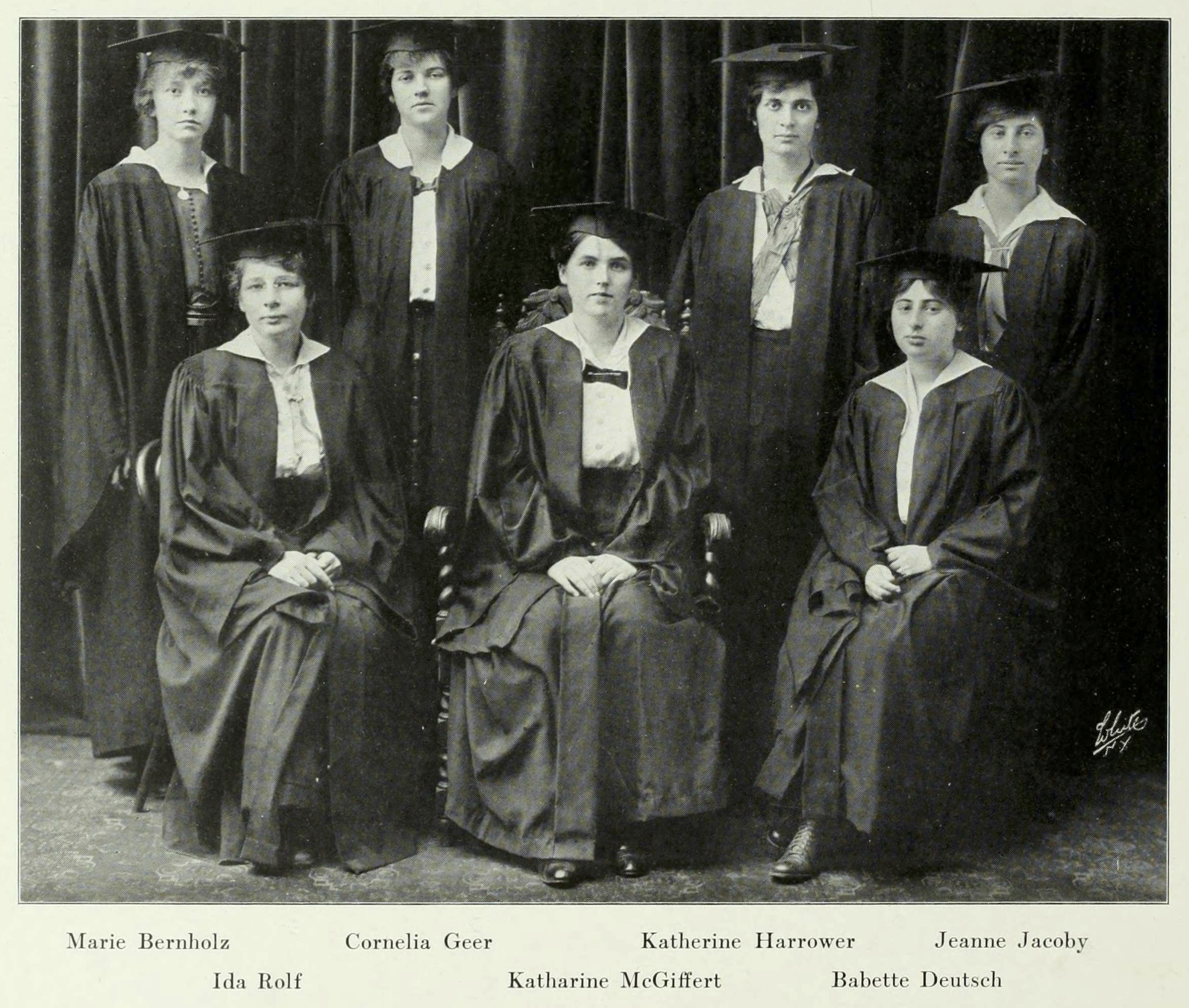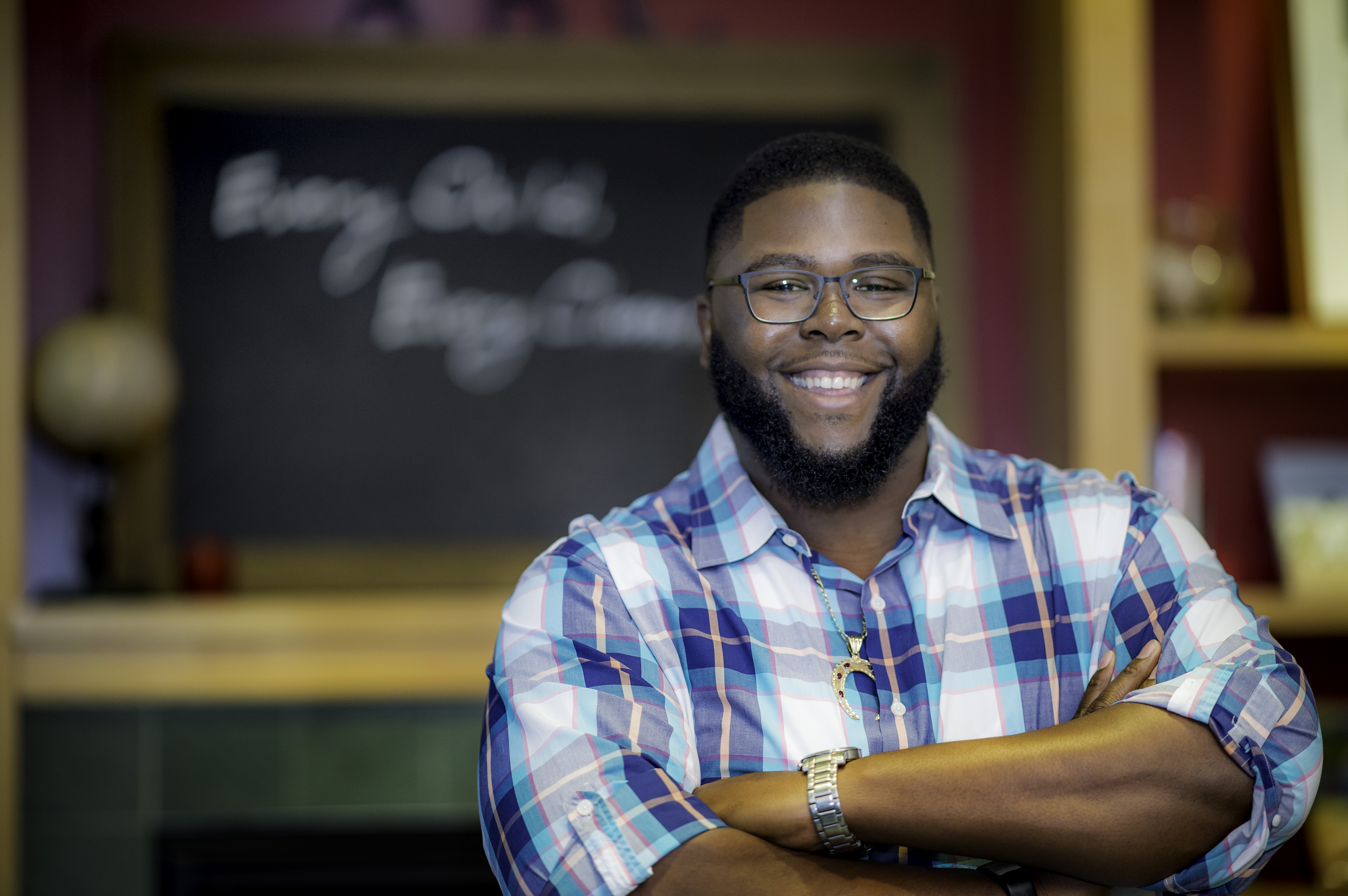[Main photo, above: Rolf, second from the left.]
Biochemist Ida P. Rolf, a 1916 Barnard graduate, was a 20th-century wellness thinker who developed a holistic system of soft-tissue manipulation and movement education known as “Rolfing,” which is still practiced around the world today.
The native New Yorker graduated with honors in chemistry but cultivated interests beyond just her major. On campus, she was an active member of the German club and the College’s Young Women’s Christian Association, as well as vice president of her graduating class.
Fun fact:
Every Tuesday, the Mathematics Club held a meeting. When the scheduled speaker was unable to attend on March 23, 1915, Rolf, who was then a junior, entertained the club with a discussion on the importance of numbers in chemistry — for an hour. According the March 29, 1915 Barnard Bulletin, “she showed the intricate relationships of elements established through their atomical weights."
After Barnard, Rolf pursued a Ph.D. in biological chemistry at Columbia College of Physicians and Surgeons and secured a position researching organic chemistry at the Rockefeller Institute in New York. Despite being the first woman to hold a research position at Rockefeller, Rolf went on to become an associate professor there and published numerous papers on biochemical compounds.
Rolf’s prolific research and publishing took her abroad to work and study biochemistry in Paris, mathematics and physics in Zurich, and homeopathy in Geneva. Upon her return to the U.S., she explored several different healing techniques — such as osteopathy, chiropractic medicine, and yoga, the Alexander Technique, and more — and began teaching her ideas on the concept of structural integration in the 1940s before making a name for herself at the retreat and education center Esalen in California.
Structural integration, also known as Rolfing, grew out of Rolf’s longtime practices in wellness and holistic health. Rolf believed that physical ailments could be combated with proper alignment of the body to the earth and began instructing others on how she believed the body’s inner systems could be improved via physical manipulation of the soft tissue. Rolf’s medicinal system was based around the core belief that “an effective human being is a whole that is greater than the sum of its parts.”
Rolf died in 1979, but she left a long legacy in alternative medicine. The Dr. Ida Rolf Institute in Colorado continues to train practitioners, called “Rolfers,” in her system. Today, according to the Rolf Research Foundation, structural integration has more than 4,000 practitioners and is taught at 17 schools around the world.
Barnard has a new centralized hub for all wellness-related initiatives across campus, the Francine A. LeFrak Foundation Center for Well-Being. The Francine LeFrak Center supports the entire College community with a 360-degree perspective of personal well-being: physical, mental, and financial.
*This series is produced in collaboration with Obden Mondésir, associate director of the Barnard Archives and Special Collections.
— ISABELLA PECHATY ’23





